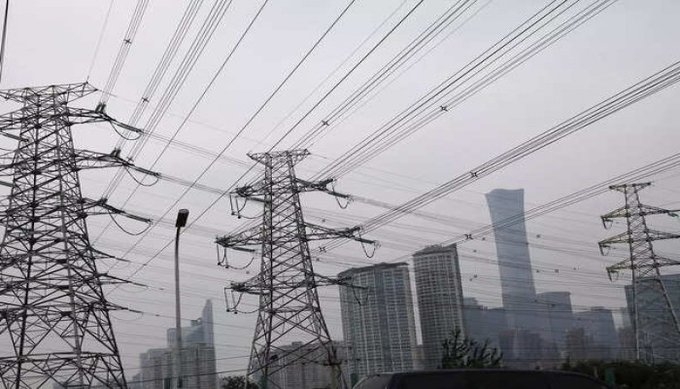India to get a modern and smart power transmission system
08 Mar 2023 16:30:21
New Delhi, Mar 08: The country will soon have a modern and smart power transmission system with features such as real-time monitoring and automated operation of the grid, a Power Ministry statement said on Tuesday. The government has accepted a report from a task force or expert panel, which paves the way for a modern and smart electricity transmission system in India.

The modern and smart power transmission system will provide better situational assessment, the capability to have an increased share of renewable capacity in the power mix, enhanced utilization of transmission capacity, greater resilience against cyber attacks as well as natural disasters, centralized and data-driven decision-making, reduction in forced outages through self-correcting systems, etc.
These and other recommendations are part of a report of a task force set up by the power ministry in September 2021 under the chairmanship of POWERGRID chairman and managing director to suggest ways for modernization of the transmission sector and making it smart and future-ready, it stated. The other members of the task force included representatives from state transmission utilities, Central Electricity Authority (CEA), central transmission utilities, MeiTY (Ministry of Electronics and Information Technology), IIT Kanpur, NSGPMU, and EPTA. The report of the committee was accepted by the government after deliberations with Union power minister R K Singh last week, it stated. During the meeting, the minister emphasized that a modern transmission grid is vital to achieving the government's vision to provide 24x7 reliable and affordable power to the people and also meet sustainability goals. Singh said that a fully automated, digitally controlled, fast responsive grid that is resilient to cyber-attacks and natural disasters is the need of the hour. The minister said that such a system should ensure the isolation of specific areas in case of any contingency, so as to protect the grid and prevent larger outages. Appreciating the efforts of the task force, Singh directed the CEA to formulate necessary standards and regulations for the adoption of identified technological solutions and set benchmark performance levels so as to build a robust and modern transmission network in the country.
The task force in its report has recommended a bouquet of technological and digital solutions, which can be adapted to make the state transmission grids future-ready. These recommendations have been clubbed under categories of modernization of existing transmission system; use of advanced technology in construction and supervision, operations and management; smart and future-ready transmission system; and up-skilling of the workforce. The task force also recommended benchmarks for transmission network availability and voltage control based on the performance of global transmission utilities. While the short-term to medium-term recommendations will be implemented over 1-3 years, the long-term interventions are proposed to be implemented over a period of 3-5 years, it stated.